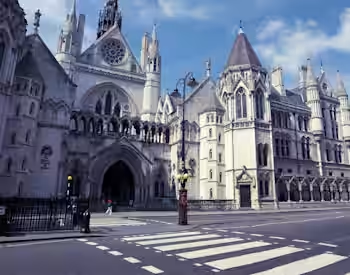Supreme Court to confirm extraterritorial scope of SFO's investigatory powers
Fieldfisher fraud specialists Natasha Hattab and Kyle Phillips discuss whether the court's consideration of the application of Section 2 powers will lead to an update of the Criminal Justice Act 1987.

A Section 2 Notice compels parties to turn over information or attend an interview during an investigation into the company.
Background
On 17 February 2017, the SFO commenced an investigation into KBR Ltd (the UK subsidiary of KBR Inc.) after discovering that it had provided consultancy services to Unaoil Group, a Monaco-based former oilfield services company, which was the subject of an SFO investigation on grounds of suspected corruption.
The SFO served KBR Ltd with a Section 2 Notice, with which KBR Ltd initially complied. The SFO subsequently became aware of the role KBR Inc. played in KBR Ltd's activities with Unaoil, including the provision of approval to make significant payments to Unaoil.
At the request of the SFO, a meeting was arranged between the SFO and KBR Ltd, attended by representatives from KBR Inc. During the meeting, the SFO served the representatives with a Section 2 Notice.
KBR Inc. subsequently sought judicial review of the Section 2 Notice on three grounds; specifically, that Section 2 of the CJA 1987 did not operate extraterritorially.
Administrative Court ruling
On 6 September 2018, the Administrative Court handed down its judgment, in which it held that, for public interest reasons, Section 2 CJA 1987 was capable of extraterritorial application.
The complex, international nature of cases that the SFO investigates, combined with modern technology that makes communication and document transfer quick and easy, meant that there was "an extremely strong public interest in the extraterritorial ambit of s. 2(3)".
However, the extraterritorial ambit applied only to foreign companies where there was a 'sufficient connection' between the company and the jurisdiction.
In the present case, the court was satisfied that there was a sufficient connection between KBR Inc. and the UK because of evidence that payments made by KBR Ltd to Unaoil required the approval of KBR Inc., and that such payments were made from KBR Inc.'s US-based treasury function.
On 8 April 2019, the Supreme Court granted KBR Inc. leave to appeal the decision to extend the extraterritorial scope of the SFO's investigatory powers.
Supreme Court hearing
In a virtual Supreme Court hearing on 13 October 2020, counsel argued on behalf of the SFO that the challenge made by KBR Inc. threatened to create an imbalance in the SFO's powers if successful, arguing that: "there would be a disconnect if you could prosecute an overseas company but you couldn’t investigate it".
Counsel for KBR Inc. argued that in demanding the production of overseas-stored information from a foreign company with the threat of criminal sanctions for non-compliance, the SFO's use of Section 2 powers was not what parliament intended when it passed the CJA 1987.
Upholding the inferior court's decision could pose a problem for international comity (a principle established to avoid unreasonable interference with another country's sovereignty).
Counsel added that the matter was better suited for consideration by the UK parliament rather than its courts.
Conclusion
The Supreme Court said it would hand down a decision "in due course".
With no further recourse for appeal, it will be interesting to see whether the Supreme Court upholds the extension of the extraterritorial scope of the SFO's powers.
If it does, this will have a significant impact on foreign companies with a presence in the UK, should their UK based entity become the subject of an SFO investigation.
As argued by counsel for KBR Inc., the Supreme Court may also consider what parliament intended when it passed the CJA 1987 and whether as a result of this case, the legislation needs to be reviewed.
In the 30+ years since the act was passed, investigations have become far more global and commonly extend to multiple jurisdictions, coupled with the impact of modern technology, it will be for the Supreme Court to decide whether the CJA 1987 is now out of date.
This article was authored by litigation solicitor Natasha Hattab and corporate crime director Kyle Phillips.

